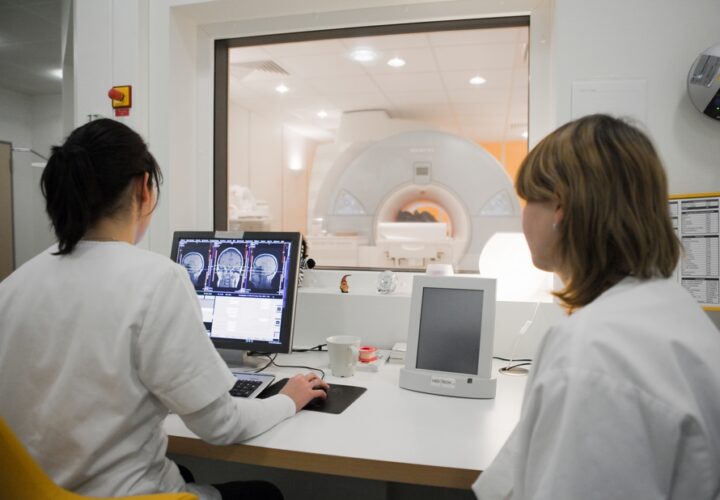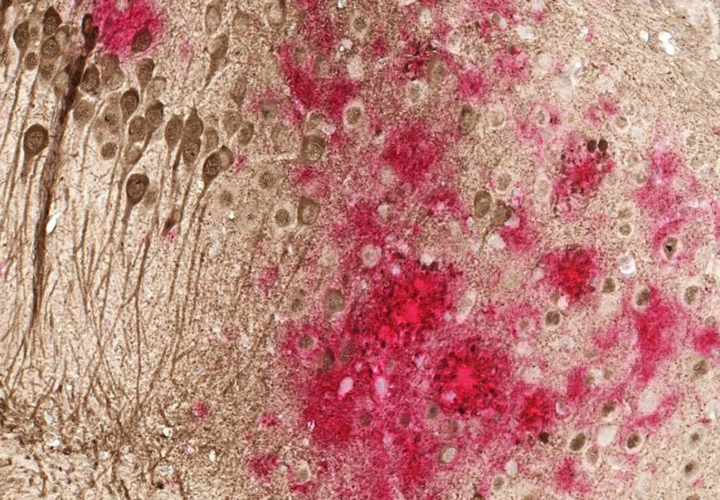While some scientists are focused on targeting beta-amyloid plaques to treat Alzheimer’s, others are honing in on another hallmark of the disease — pathological tau proteins — and developing a tau vaccine in hopes of preventing the disease. Being Patient spoke with Norbert Žilka, chief scientific office at AXON Neuroscience, a biotech company that is developing an anti-tau vaccine which showed promise in phase two clinical trial.
- While people can have beta-amyloid plaques in their brains without suffering from Alzheimer’s, older adults can also live with abnormal tau proteins without clinical symptoms of the disease. And tau pathology is likely a part of the aging brain
- Scientists are developing a vaccine that helps the immune system identify and target the pathological tau proteins
- Phase two clinical trial of the tau vaccine developed by AXON Neuroscience shows that the therapy is safe, with indications that it can slow down neurodegeneration
Being Patient: There are people who have amyloid plaques in their brains and never present symptoms of Alzheimer’s. Is it possible to live with tau as well without showing symptoms of Alzheimer’s?
Norbert Zilka: The formation of neurofibrillary pathology is a very complicated process. It can take years. There are some studies showing that [it can take] about 10 [to] 20 years. There are lots of patients over 85 years [old with] the typical pattern for Alzheimer’s disease, and still they don’t have any clinical presentation of dementia.
Unfortunately, the tau pathology is most probably a part of aging of the brain. But there are some other factors that play important roles. That definitely [involves] neuroinflammation, [and] whether the brain is able to somehow cope with the presence of tau pathology in the brain, or on the other side, it can somehow speed up the process. So we know that this could be one of the explanations why we can see some patients having lots of pathology and no clinical presentation. But [these patients are] usually after the age of 85.
Being Patient: What’s the basic function of tau?
Norbert Zilka: Tau belongs to the group of proteins which we call naturally disordered protein. It means that these proteins usually do not have a final structure: imagine spaghetti in boiling water and they can change structures. That’s the typical feature of tau protein [in physiological condition.] And that’s a great advantage because then it can serve as a signaling molecule. One important feature is that they can attain the specific structure upon the interaction with other proteins.
We know that tau protein can be distributed throughout the neurons in physiological condition. So we can analyze the presence of the tau in the extracellular space. Of course, tau plays an important role in the synaptic functions. It’s important for the cytoskeleton of neurons. We can also find tau in the nucleus of neurons and also other types of glial cells.
In the nucleus, they can somehow protect DNA. So there are lots of roles for tau protein. This is due to the fact that it has no firm structure. Tau protein is very flexible and can do multiple jobs.
Being Patient: Do tau proteins differ between normal and Alzheimer’s brains?
Norbert Zilka: In normal brains, there are let’s say hundreds of different tau proteins [with] different structures and functions. And in Alzheimer’s disease, it’s even more complicated … [there’s] a thousand, maybe several thousands of different tau proteins. So what’s the main difference between the physiological and pathological [conditions of tau proteins in normal versus healthy brains]?
The main difference is in one very specific modification which we call truncation … you can get different types of truncated proteins: normal truncated proteins and the pathological ones.
Unfortunately the brain is not able to discriminate between bad and good guys. The immune system can do this job. The immune system needs specific information. The approach of [developing our vaccine] was to find whether the immune system can somehow find the way to differentiate between these two groups.
In the case of the pathological [tau] species, we can see that there is a specific shape of those truncated tau proteins. The antibodies can nicely recognize these types of structures … We identified the specific short area of tau protein, which we call achilles heel. It’s a vulnerable area in tau protein … So we cut off these tau peptides to the carrier protein in order to persuade the immune system to produce specific antibodies against these very small areas on the tau.
Being Patient: Can you tell us about the results of the tau vaccine from the phase two clinical trial?
Norbert Zilka: One of the most important results coming from the phase two clinical trial was that the vaccine is safe, and that was very important because we recruited patients older than 55 years [old]. We didn’t find any serious adverse events during the clinical trial. The second main point was that the vaccine was strongly immunogenic, which is not easy in general for vaccines because the majority, if not all people over [the age of] 50 suffer from immunosenescence. They [don’t] respond properly to different types of vaccines. That’s why we modified the vaccine in order to get the proper immune response. The third point, which is important for the phase three clinical trial development is that we were able to see that the vaccination slowed down the neurodegeneration.
Being Patient: If this vaccine ultimately proves to be effective, do you foresee that healthy people can get vaccinated to prevent Alzheimer’s?
This is the ultimate goal of our company. Once we [are] able to identify the therapeutic effect, then we would like to focus on prevention. In that case, there are several approaches. One of that is we can go for healthy volunteers having amyloid [and] tau biomarker positivity either in [cerebrospinal fluid] or by using PET imaging. This is the vulnerable group [which] we can expect maybe in the future they can develop dementia.
The interview has been edited for length and clarity.
Contact Nicholas Chan at nicholas@beingpatient.com




I have earlier onset Alzheimer’s and I’m interested in your trails. My age is 55 years old. Thank you for all your doing to stop this terrible